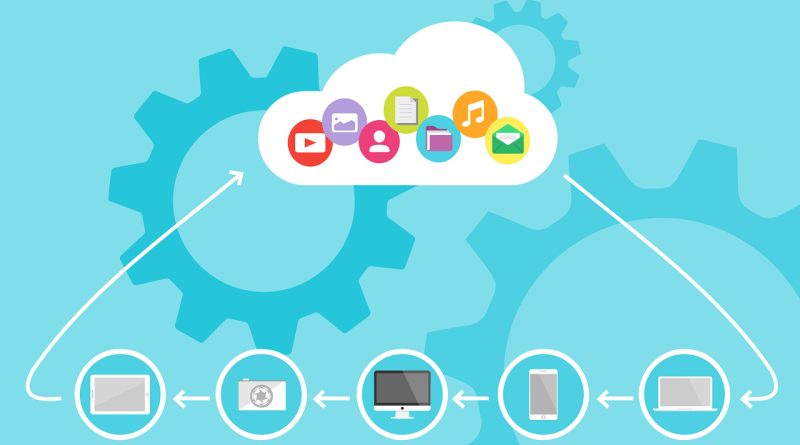Is Cloud Storage Secure? Yes, and Here’s Why
Cloud storage is a way to store data on remote servers instead of on your computer. This can be helpful because it frees up space on your hard drive and makes your data accessible from anywhere with an internet connection. But some people are hesitant to use cloud storage because they worry that it isn’t secure. On this article, we’ll explain why cloud storage is secure and how to keep your data safe.
What is the cloud and why we use it?
The “cloud” or cloud computing simply refers to servers and hosted services that are accessed over the internet. Storing data on the cloud, it means that your files are stored on these remote servers. Cloud storage can be used for a variety of purposes, such as backing up files, syncing devices, and storing documents or photos.
Many people use cloud storage because it is convenient and efficient. For example, if you store photos on the cloud, you can access them from your phone, tablet, or computer without having to transfer them between devices. Cloud storage can also be helpful if you’re worried about losing data due to a hard drive failure or other type of disaster.
Is cloud storage safe and private?
Yes, cloud storage is safe and private. Cloud storage providers take security seriously and invest heavily in protecting their servers from hackers. In addition, most cloud providers encrypt data before it is uploaded to the cloud. This means that even if someone were to gain access to your data, they would not be able to read it.
Of course, no system is 100% secure, and there have been some high-profile security breaches at cloud storage providers. However, these breaches are rare, and they typically occur because users have not followed best practices for security. For example, in the 2014 Dropbox breach, hackers were able to gain access to user accounts by stealing passwords that were stored insecurely.
Is cloud storage more secure than local storage?
There is no clear answer to this question. Cloud storage is generally considered to be just as secure as local storage, but there are some advantages and disadvantages to each.
One advantage of cloud storage is that your data is spread across multiple servers, which makes it more difficult for hackers to access all of your information. Additionally, cloud providers typically have more security measures in place than individual users. On the downside, if you lose your password or your account is hacked, you may lose access to your data.
With local storage, you have more control over your files, but they are also more vulnerable to theft or accidental deletion. Additionally, local storage can be more expensive in the long run, since you have to buy and maintain your own storage devices.
How to keep your data safe
There are a few cloud security solutions to keep your data safe when using cloud storage:
- Use a strong password: A strong password is the first line of defence against hackers. Be sure to use a unique password for your cloud storage account and don’t reuse passwords on other websites.
- Enable two-factor authentication: Two-factor authentication is a security feature that requires you to provide two pieces of information (such as a password and a code sent to your phone) in order to log in to your account. This makes it more difficult for hackers to gain access to your account.
- Be careful what you share: When you share files or folders in cloud storage, you’re giving others access to your data. Be careful who you share with and what type of access you’re giving them. For example, if you’re sharing sensitive data, you may want to set an expiration date for the share or require a password.
- Keep an eye on your account: Periodically check your account activity to make sure that everything looks normal. If you see anything suspicious, report it to your cloud storage provider immediately.
Cloud storage is safe and secure, and with a few simple precautions, you can keep your data safe.
How is cloud storage secure?
Cloud storage providers typically encrypt data before it is uploaded to keep the cloud secure, which means that even if someone gained access to your files, they would not be able to read them. It can only be read by someone who has the correct key. Cloud storage providers also invest heavily in data security measures to protect their servers from hackers. Additionally, most providers offer two-factor authentication, which adds an extra layer of security to your account.
Cloud storage providers
A Cloud service provider is company that offer remote storage services as well as other cloud services. There are many different cloud service providers, and they all offer different features. Some popular providers are iCloud, Dropbox, Google Drive, Microsoft OneDrive, Amazon Cloud Drive and Box.
iCloud is a cloud storage and computing service from Apple Inc. launched on October 12, 2011. It allows users to store data such as music files, photos, apps, documents, and more on remote servers for download to multiple devices such as iOS-based devices, personal computers running macOS or Windows 10, and Apple Watch.
Dropbox is an American cloud storage company that offers online backup, file sharing, and client software. It was founded in 2007 by Drew Houston and Arash Ferdowsi, and is headquartered in San Francisco, California.
Google Drive is a file storage and synchronization service developed by Google. It allows users to store files in the cloud, share files, and edit documents, spreadsheets, and presentations with others. Google Drive was first announced on April 24, 2012, and was released to the public on May 16, 2012. As of January 2017, it has over 1 billion active users.
Microsoft is also a cloud provider that offers cloud storage service through Microsoft OneDrive. It allows users to store files and personal data in the cloud, share files with others, and sync files across multiple devices. OneDrive was first announced on August 1, 2007, and was released to the public on February 19, 2013. As of January 2017, it has over 200 million active users.
Amazon Cloud Drive
Amazon Cloud Drive is a cloud storage service developed by Amazon. It allows users to store files in the cloud, share files with others, and sync files across multiple devices. Cloud Drive was first announced on March 6, 2011, and was released to the public on March 15, 2011. As of January 2017, it has over 5 million active users.
Box is a cloud storage and file sharing service developed by Box. It allows users to store files in the cloud, share files with others, and sync files across multiple devices. Box was first announced on October 3, 2005, and was released to the public on November 9, 2005. As of January 2017, it has over 41 million active users.
Do you have to pay to use the cloud?
Most cloud storage providers offer a free plan with limited storage, and they also offer paid plans with more storage and additional features. For example, Dropbox offers 2 GB of free storage and 50 GB of paid storage. Google Drive offers 15 GB of free storage and 100 GB to 1 TB of paid storage.
Is it worth paying for cloud storage?
It depends on how you plan to use cloud storage. If you need a lot of storage and you need access to features like collaboration or online editing, then it is probably worth paying for a plan. If you only need a small amount of storage, there are many free options available.
Conclusion
Cloud storage is safe and secure, and with a few simple precautions, you can keep your data safe. Cloud storage providers typically encrypt data before it is uploaded to the cloud, which means that even if someone gained access to your files, they would not be able to read them. Additionally, most providers offer two-factor authentication, which adds an extra layer of security to your account. Cloud storage is a great option for storing and sharing files, and with a little planning, you can keep your data safe.



